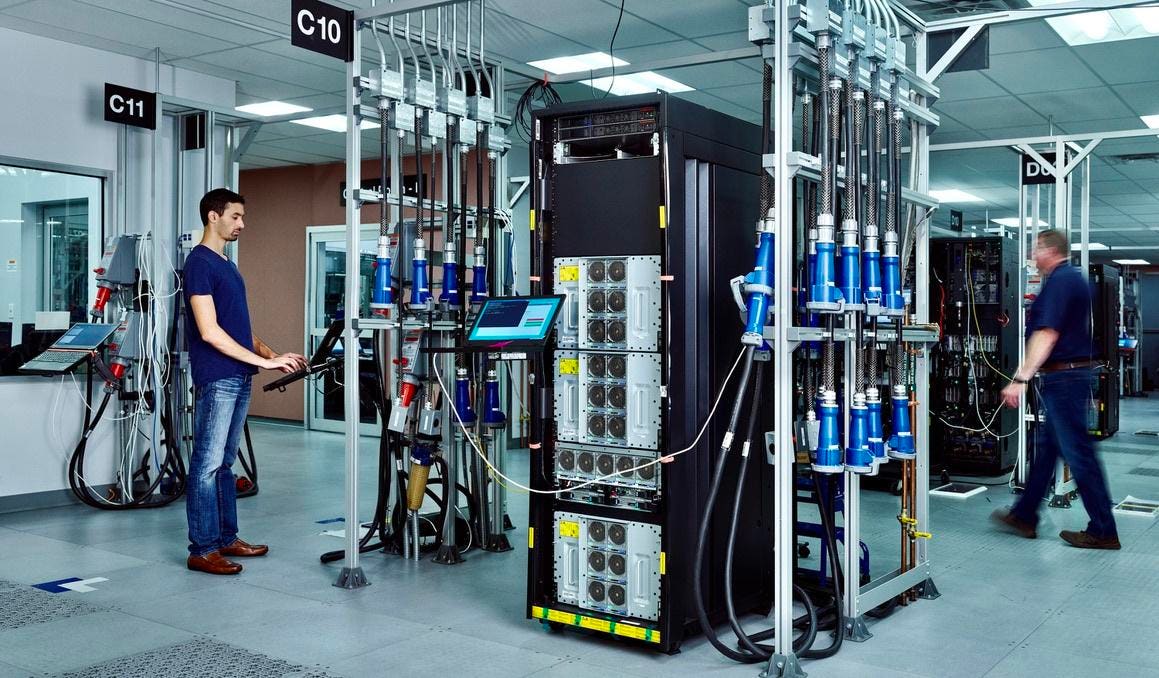[ad_1]
Operating an IBM z16 system
IBM has launched a new generation mainframe with artificial intelligence built into the chip to provide financial firms such as banks and credit card companies with the ability to conduct fraud analysis of 100% of their transaction in real-time. IBM commissioned a Celent study, without taking any editorial control.
Neil Katkov, who oversees the risk and compliance space at Celent, said the new IBM z16 mainframe with on-chip AI (artificial intelligence) will permit high-speed payment processors to run all their transactions through fraud protection. In the past firms have been limited to approximately 10% of their transactions because of throughput and latency issues.
Payment firms have two concerns when presented with a payment — one is preventing fraud, and the second is turning down legitimate transactions, false positives. That can result in the customer moving the card to the bottom of her wallet or leaving it at home.
IBM mainframes play a big role in finance. The company said that 45 of the top 50 global banks use its mainframes and they process 70% of global transactions, on a value basis.
Katkov said that the integrated AI could reduce card declines by 46% and losses by $105 million at a Tier 1 bank and $18 million at a Tier 2. Fraud has been on the rise, aggravated by Covid, he added.
“The pandemic has led to an increase in digital banking and e-commerce, as consumers have avoided in-branch and in-store transactions. Because card not present (CNP) transactions make up the lion’s share of card fraud—around 65%—card fraud losses have increased.”
While deep learning models can improve accuracy in fraud detection in real-time payments by an estimated 60% “latency makes it impractical to pass all transactions through an AI detection platform in high-volume environments.”
Sending a transaction off the core system to a fraud detection platform can take 50 to 80 milliseconds or more, while throughput ranges from 1,000 to 1,500 transactions per second, Celent said.
By contrast , 32 of IBM’s new Telum mainframe processors running its AI accelerator on a single server could process 3.5 million inferences per second with 1.2 millisecond latency, said the Celent report. IBM said the z16 can process 300 billion inference requests per day with just one millisecond of latency.
“For consumers, this could mean reducing the time and energy required to handle fraudulent transactions on their credit card,” IBM said in its announcement. “For both merchants and card issuers, this could mean a reduction in revenue loss as consumers could avoid frustration associated with false declines where they might turn to other cards for future transactions.”
Improved real-time detection also reduced time-consuming, and expensive, post-transaction investigations.
Katkov noted that AI presents its own issues such as opaque black boxes that make it difficult, if not impossible, for regulators and internal auditors to understand how decisions are made.
“AI models must be transparent and explainable. While AI platform vendors are generally moving away from black box approaches, governance of AI models remains a complex undertaking.”
Regulators may lag in their understanding he added so “Banks, data scientists, and their vendors may in some cases need to educate regulators on the efficacy and reliability of advanced AI as they move forward.”
And of course cost is an issue, especially for a firm which has recently invested in the latest state-of-the-art fraud detection technology. Finding data scientists to develop models could also be a challenge.
In addition to reducing payment fraud, the AI-enabled z16 could be used to speed up loan approvals, to examine risk in clearing and settlement and to better model risk of fraud and theft in retail, the company’s announcement said.
[ad_2]
Source link
My NEO Group:
– White paper My NEO Group: https://myneo.org
– Discover NEO X: https://docs.myneo.org/products/in-development/neo-x
– Disccover NEO Dash: https://myneodash.com
– Discover Banca NEO: https://bancaneo.org
– Interview of the CEO of My NEO Group, Mickael Mosse, in Forbes: https://forbesbaltics.com/en/money/article/mickael-mosse-affirms-commitment-to-redefining-online-banking-with-bancaneo






